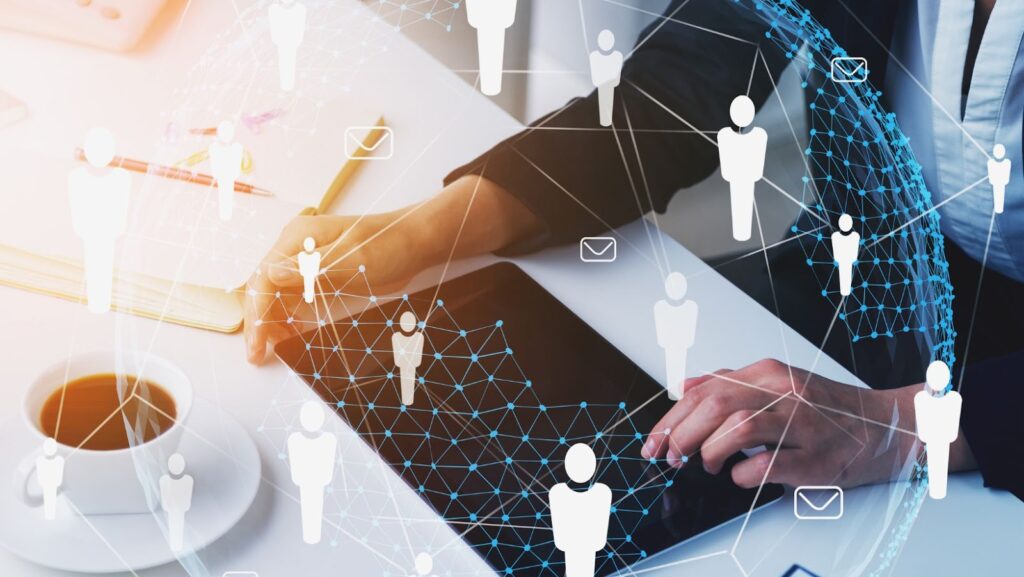In the bustling landscape of the 21st century, artificial intelligence (AI) is no longer a far-off concept, but a reality that’s transforming various sectors, including human resources (HR). From recruitment to employee engagement, AI is revolutionizing how HR professionals manage and interact with their workforce.
AI tools are not just automating mundane tasks, they’re also providing insightful data, enabling HR teams to make informed decisions. This article delves into the profound changes AI is bringing to the HR realm, and how it’s shaping the future of work. Stay tuned to discover how AI is turning the tables in human resources.
The Impact of AI on Recruitment and Hiring Processes
AI bears a significant influence on the procedures of recruitment and hiring. This influence results in enhanced efficiency and more informed decision-making. Diving deeper, we can explore particular aspects where AI shows its transformative power.
Enhancing Candidate Screening with AI
AI-powered tools like Atlas Up have caused a revolution in candidate screening processes. These tools analyse resumes, considering multiple factors like experience, skill sets, and educational qualifications. Offering a sharp contrast to manual processes, AI performs analysis quickly and without biases, creating a fairer hiring scenario. Examples of tasks AI tools accomplish include scanning resumes for keyword relevance, assessing candidate suitability, and eliminating bias.
AI also helps to shorten the recruitment cycle. Traditionally, the human touch in recruitment involves a detailed perusal of applications, often leading to time-consuming processes. In such situations, AI proves to be a respite, filtering out unsuitable applications, thus expediting the screening process.

Lastly, AI assists in making data-driven decisions during recruitment. By analysing a large volume of data, AI can identify trends and patterns that human recruiters might overlook. Consequently, it affords a more in-depth insight into the candidate pool, aiding recruiters in making informed decisions.
AI-Driven Employee Onboarding and Training
Artificial intelligence (AI) doesn’t stop its influence on the HR landscape with recruitment. AI revolution continues into the realms of employee onboarding and training. In this area, AI-powered tools bring efficiency, scalability, and personalization in an unprecedented manner.
Personalizing Training Programs with AI
AI-driven platforms are taking the guesswork out of employee training. Instead of casting a wide net with generic training programs, AI-driven tools, much like Atlas Up, identify the unique needs of each employee. Embedded analytics, assessment solutions, and pattern recognition capabilities allow these tools to autonomous mold training programs. The result is a dynamic training program optimized for personalized learning, tailored to an individual’s strengths, weaknesses, and learning pace.
Transactional interactions, such as asking and answer specific questions, customizes learning paths based on feedback loops. This degree of granularity ensures every program is as effective as possible, leading to increased productivity and, ultimately, a more skilled workforce.
AI in HR Analytics and Decision Making
AI’s role in HR extends beyond recruitment and training, offering novel insights on HR analytics and decision-making.
Using AI for Workforce Planning
AI-powered tools exemplify how HR departments improve workforce planning. For instance, Atlas Up conducts pertinent processes efficiently, examining recruitment data and identifying staffing needs. By understanding an organization’s unique trends and predicting future HR demands, AI tools offer data-driven strategies benefiting workforce planning.

AI not only processes employee data faster than any human analyst but also anticipates turnover risks, optimizes workforce diversity, and forecasts the impacts of business strategies on human resources. Consequently, using AI for workforce planning eliminates intuition-based decisions, ensuring choices rely on data and predictive analytics.
Conclusion
AI’s transformative power in HR is undeniable. Its impact ranges from streamlining recruitment with tools like Atlas Up to personalizing training programs, resulting in a more skilled and productive workforce. AI’s influence extends to HR analytics, revolutionizing workforce planning with data-driven strategies. This shift from intuition-based to predictive analytics is reshaping HR practices and the future of work. It’s clear that AI tools are not just changing HR—they’re setting a new standard. As the sector continues to evolve, embracing these AI tools will be key to staying competitive. The future of HR is here, and it’s powered by AI.



